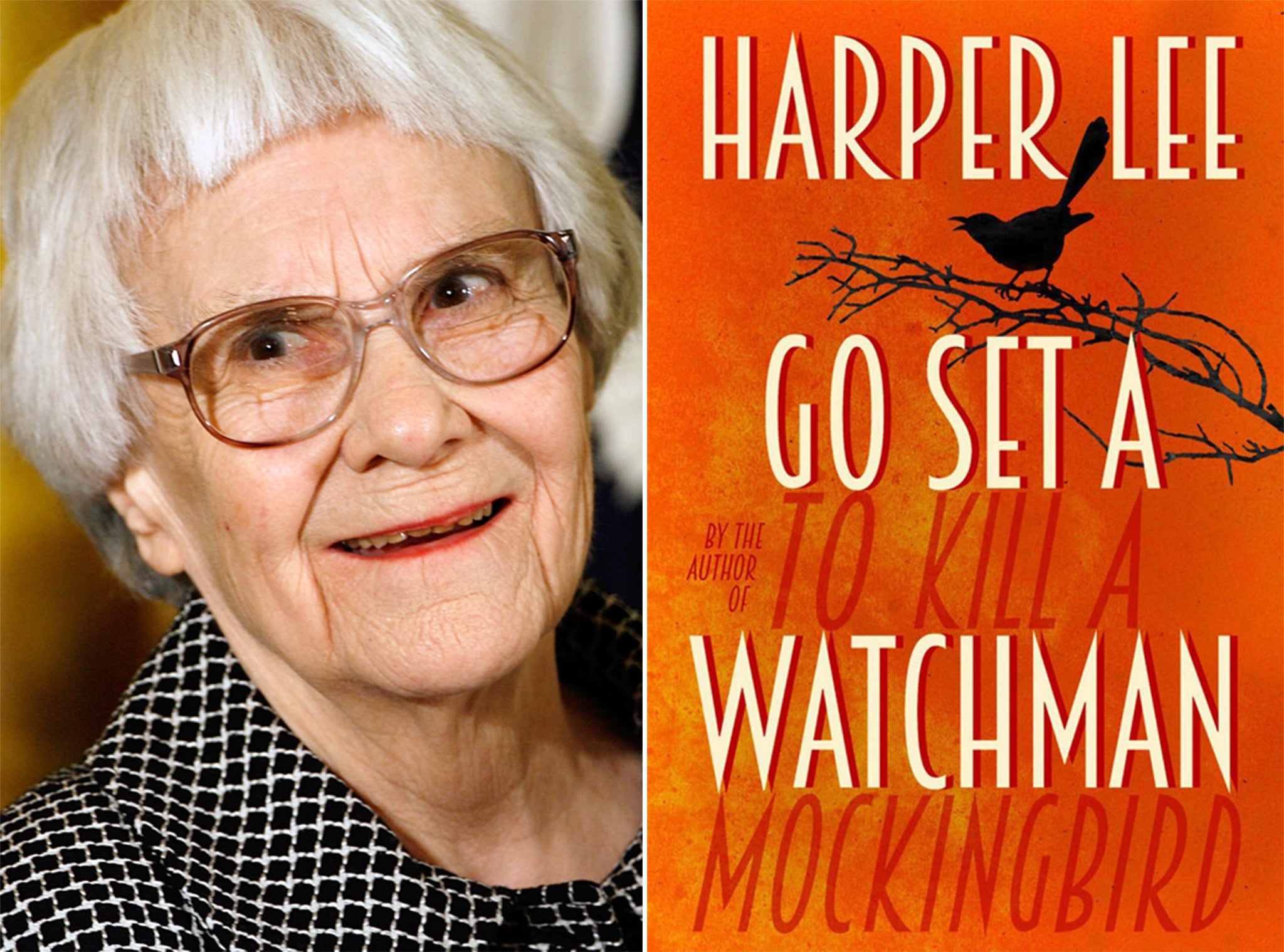Go Set A Watchman: Unpublished novels are usually unpublished for a reason
Here’s hoping Harper Lee’s ‘pretty decent effort’ of a first novel is exactly that

In 1995, Harper Lee wrote the foreword to a 35th anniversary edition of To Kill a Mockingbird. “I am still alive”, she wrote. “Although very quiet.”
She isn’t quiet now. On Tuesday, Lee’s second novel Go Set a Watchman, will be published, more than half a century after her first. To call it scorchingly anticipated is to undersell it a bit; only an unearthed sequel to the Bible or Harry Potter: the University Years could provoke the same feverish excitement, scandal and over-the-top security measures at bookstores.
Second novel is a misnomer. Lee describes the work as the “parent” to To Kill a Mockingbird: although it picks up the key characters Scout and Atticus Finch 20 years on, it was written before she attempted the classic. Either way it is something new(ish) from a writer who looked like she would never publish another word, based on characters the world already knows and loves. Her publishers must be in heaven.
Go Set a Watchman is already No 1 on Amazon – the most pre-ordered novel since the last Harry Potter. Its initial print run in America is two million. Copies are being air-couriered to Azerbaijan, printed in Australia, shrink-wrapped and locked in safes all over the world lest anyone sneaks a look before the big day. In an age where bookshelves are ruled by bondage, boy wizards and Dan Brown, it is heartening to see a literary novel get some hype for once.
It is just hype, though. Apart from the first chapter, published yesterday online, no-one knows if the book is any good. That didn’t stop the extract triggering a run of live blogs, insta-reviews, interviews and souvenir specials. A new edition of Mockingbird is on the shelves. On Tuesday, bookshops will hold midnight readathons and “Tequila Mockingbird” parties. Lee’s hometown, Monroeville, Alabama, will be over-run by camera crews and fans on walking tours. Not bad for a first novel that Lee kept locked away for almost 60 years and has described damply as “a pretty decent effort.”
What Lee – aged 89, almost blind and quite deaf after a stroke in 2007 – makes of all this fuss is not known. She has been in an assisted living facility in Monroeville for eight years, and barely seen in public for 50. In 2006, she wrote a letter to Oprah Winfrey decrying the march of technology. “I still plod along with books. Instant information is not for me. I prefer to search library stacks because when I work to learn something, I remember it.”
We will probably never hear how she feels about seeing 3,600 of her early, hard-wrought words – held private for so long – spread instantly around the globe, speed-read and speed-judged online, but she is unlikely to relish the experience. She once said the success of Mockingbird was “like being hit over the head and knocked cold.” That was before Twitter.
Last week, in what is arguably even more of an event than the novel, Lee attended a lunch held in her honour by her publishers. There’s a picture of her, spruce in a checked jacket and sitting in a wheelchair, looking at the book for the first time. She even answered a journalist’s question, something she has refused to do since the mid-60s. So Go Set a Watchman has already torn two holes in the fine cobweb of Lee’s mystique. She is no longer a one-novel wonder. And she is no longer a recluse (if it was ever right to label her thus).
Amid the excitement there is disquiet that Lee has been steamrollered into publishing her juvenilia. The New York Times claimed the work was rediscovered in 2011, then buried at Lee’s behest by her then lawyer and sister, Alice (who died last year). Lee’s new lawyer, Tonja B Carter claims to have discovered it last August. Asked if she wanted it published, Lee told a reporter: “Of course I did. Don’t be silly.” And that is probably all she will ever say.
Should it have stayed in the safe? Perhaps. Unpublished novels are usually unpublished for a reason. If it turns out to be a poorer novel than To Kill a Mockingbird – and given that it is, essentially, its first draft, it seems likely – then so be it. Lee’s reputation will be a touch tarnished, readers’ fantasies of a reclusive one-hit wonder a touch dulled. That does not, nor should not, diminish one of the great works of 20th-century literature.”
Join our commenting forum
Join thought-provoking conversations, follow other Independent readers and see their replies
Comments
Bookmark popover
Removed from bookmarks